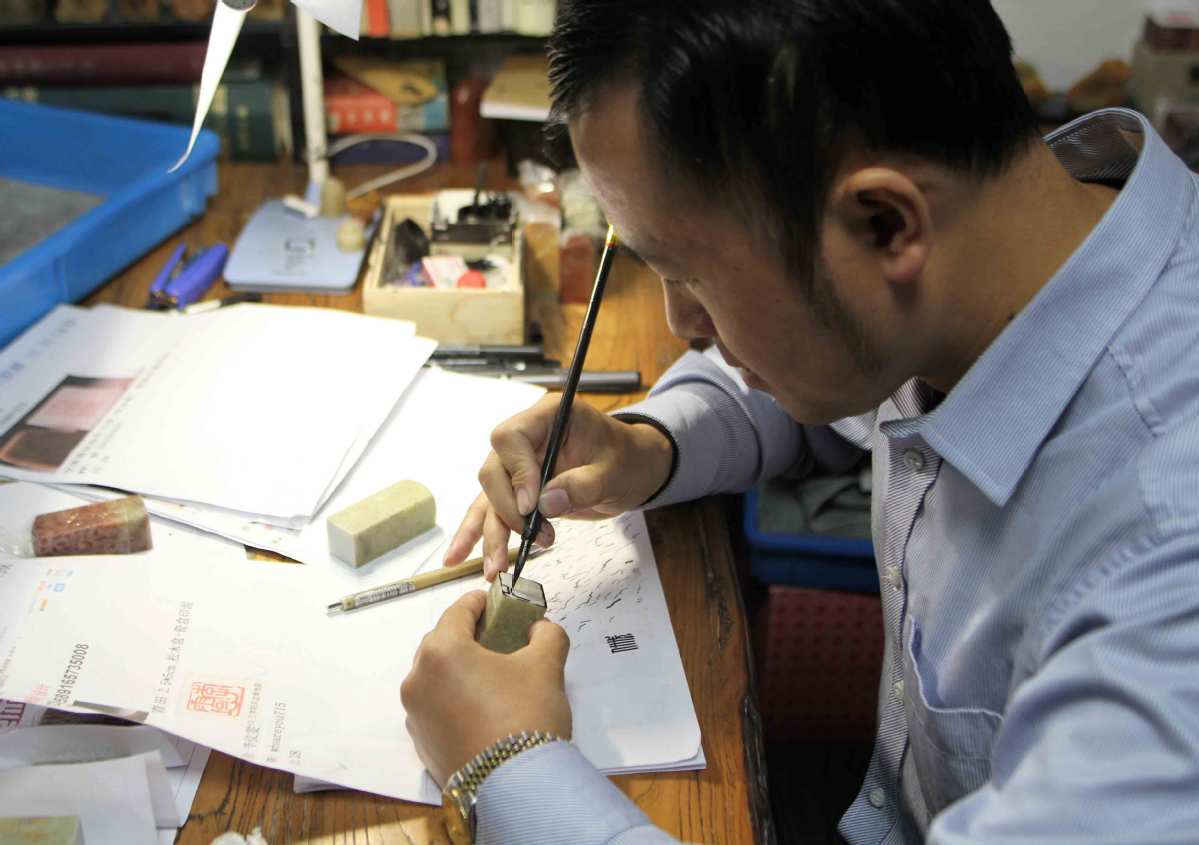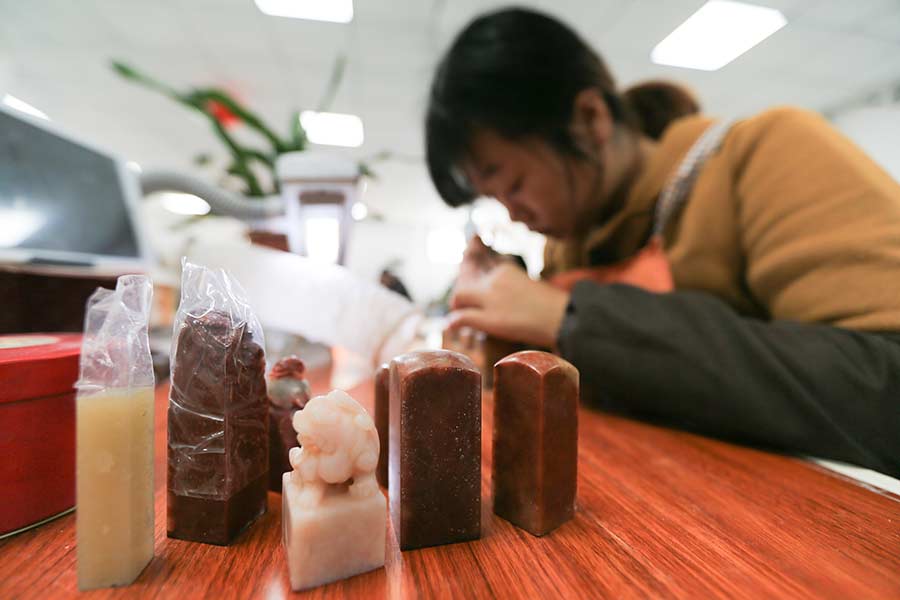
From the People's Daily app.
And this is Story in the Story.
The art of Chinese seal-engraving was inscribed in UNESCO's representative list of humanity's intangible cultural heritage in 2009.
In the Government Work Report delivered to the second session of the 13th National People's Congress, Premier Li Keqiang said the government will strengthen the protection and use of cultural relics and the preservation of intangible cultural heritage.
The Institute of Chinese Seal Engraving was established in 2006, and the country's first master's degree program on seal engraving was launched by the China Academy of Art in 2007.
"If the engraving art can enter the classrooms in primary and secondary schools, it will plant a seed of cultural confidence in the young minds of children, which will grow stronger and stronger in the future," said Luo Pengpeng, head of the Institute of Chinese Seal Engraving.
Today's Story in the Story looks at the ancient art of seal engraving and how this inherent quality of Chinese culture continues to thrive in the modern age.

A craftsman engraves a seal at a workshop at the Kongfu Seal Pavilion in Qufu, Shandong province. (Photo: CHINA DAILY)
Qufu in Shandong Province is known for its seal engraving, the local industry can be found on display at the Kongfu Seal Pavilion.
Seals are worth much more than artifacts and contain profound cultural connotations.
In ancient China, they represented promise and responsibility in a signed contract and were symbols of social status.
In the 1980s, Zhang Kai's father started selling seals at a market stall near the Temple and Cemetery of Confucius and the Kong Family Mansion, collectively known as San Kong. As more and more visitors arrived in San Kong, sales continued to grow.
"The reform and opening-up policy has made people richer, so many of them can travel to Qufu and buy our seals," Zhang said.
When Zhang graduated as a computer major in 2008, he adopted his father's suggestion to sell seals online. Soon, the name Kongfu Seal Pavilion began to spread.
"We had no orders in the first three days. The first order came on the fourth day," he said.
Yet by 2009, the online store was sometimes receiving dozens of orders a day. The following year, Zhang and his father felt unable to keep up with rising demand and started to recruit craftsmen to help.
After seeing the pavilion make a profit, many other villagers also began selling seals. "When that happened, we started to see unfair competition like price wars. So, we tried to persuade them to join us and regulate the market in a unified and systematic way," Zhang said.

An engraver works on a seal in a workshop at a "Taobao Village" in Qufu, Shandong province. (Photo: Xinhua)
They formed a Kongfu Pavilion cultural seal-engraving group, with Zhang taking charge. Since then, over 100 families have joined, with membership reaching 800.
"We received about 30,000 orders for this year's Singles Day, three times that of last year," said Zhang
"Online promotions help the business grow faster, but I'd rather stay true to my aspiration of sharing and protecting seal culture than seek economic benefits," he said.
The pavilion sells about 20,000 engraved seals a day to customers all over China and in countries including Singapore, Japan, and South Korea. Zhang said the annual output value has grown from a few thousand dollars decades ago to nearly $17.5 million dollars today.
In recent years, his store has become one of the largest of its kind, generating an average annual income of about $3 million dollars.
Recently, tech firm Alibaba and the local government named the community Qufu's first "Taobao Village", in honor of its contribution to the local cultural and economic development.
According to Qufu's Bureau of Commerce, the city government, there are over 500 Taobao online stores in the community, and the total transaction amount from 2017 stood at 150 million yuan.
Raw materials come from all over the world, including Russia, India, and Afghanistan, before they're nurtured into shape by one of the team's master engravers.
"The process of seal engraving is a unique and miraculous way to express one's sentiment for traditional culture," said Kong.
(Produced by Nancy Yan Xu, Lance Crayon, Brian Lowe and Da Hang. Music by: bensound.com. Text from China Daily.)


